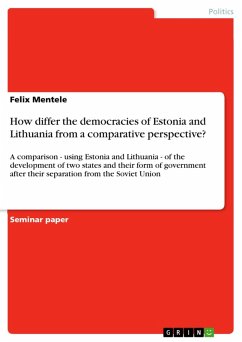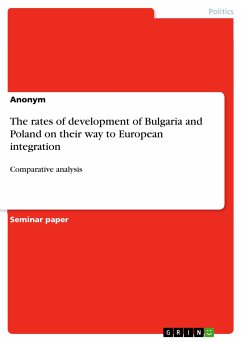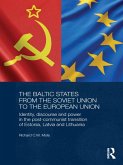Essay from the year 2007 in the subject Politics - International Politics - Region: Russia, grade: 1,0, Andrássy Gyula Deutschsprachige Universität Budapest, course: Comparative History of Estonia and Nordic Cultures, language: English, abstract: The biggest winner of the election in 2007 was the "party of the non-voters". They got nearly 39 %. In the first two parliamentary elections after the independence in 1991 the part of the non-voters was about 32 % (1992) and 31 % (1995). The peak was in 1999: 43 % of people didn't go the election. Reetz is speaking about a gap between the political problems and the interests of the people. Because of the perception of the elites is different from the ordinary people's perception. It is very surprising, that nearly every party, which is in the Riigikogu is centre, centre-right or liberalistic. Maybe this is a result of the Soviet occupation and the experiences of this time. However in the future there could be a general movement to the left, because the competition on the democratic right could become to strong. After all parties are not static - they have to change themselves if they want to participate because they are a part of the society and the society changes too. On the other hand the result of a free competition is parties will fill political gaps by changing their attitudes to achieve new voters.
Dieser Download kann aus rechtlichen Gründen nur mit Rechnungsadresse in A, B, BG, CY, CZ, D, DK, EW, E, FIN, F, GR, HR, H, IRL, I, LT, L, LR, M, NL, PL, P, R, S, SLO, SK ausgeliefert werden.









